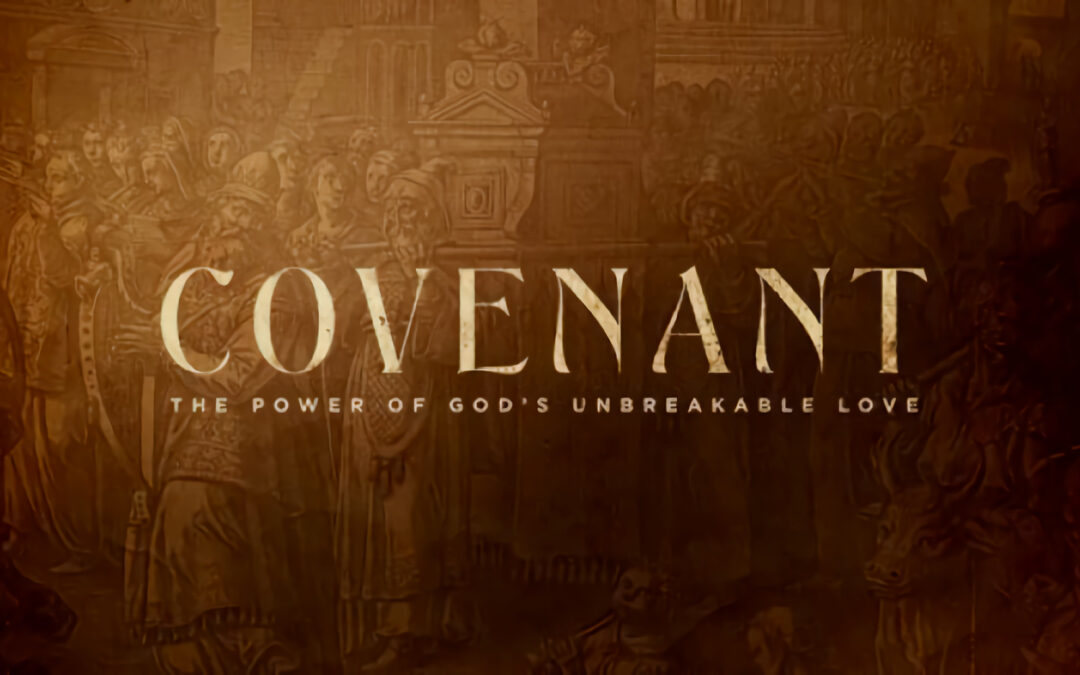“As the Father hath loved me, so have I loved you: continue ye in my love.”
(John 15:9)
Scripture is replete with the promises of God to His people – promises of protection, peace, and joy when we love, trust, and obey Him. But in addition to His many promises, divine covenants also play an essential role in the biblical narrative, particularly so in God’s unfolding drama of redemption throughout history. Because the covenant that rises above all others in significance is that divine covenant of grace between God the Father and God the Son, established and sealed before the very foundation of the world was laid (1 Peter 1:19-20).
The dual nature of this divine covenant is beautifully captured in the writings of Sir Matthew Hale in his seminal work, “A Discourse of the Knowledge of God and of Ourselves”.[1] We note that the primary facet of this particular covenant consists of a solemn agreement between God the Father and God the Son. Here the Son agrees to embody flesh and atone for the sins of God’s elect, as portrayed in Psalms 40:6 and Hebrews 10:9, “A body hast thou prepared me: lo, I come to do thy will, O God.” This covenant of redemption is manifested through the willingness of the Son to take on human form and become God’s sacrificial Lamb.
The second facet of this covenant involves God the Father and those whom He chose (also before the foundation of the world) to be His elect people. Here, the promise of forgiveness and eternal life is extended to all who embrace God’s covenant of grace. This truth is beautifully articulated in John 6:40, “And this is the will of him that sent me, that everyone which sees the Son, and believes on him, may have everlasting life: and I will raise him up at the last day.”
In the dual nature of this divine agreement, we clearly see God’s commitment to humanity but also the expectation and responsibility placed upon men to believe. Our response to this infinite expression of divine love is a life lived in obedience to Him, reflecting the transformative power of grace and faith.
Our spiritual walk is deeply intertwined with understanding and embracing this eternal covenant of grace. And by doing so, our hearts become attuned to the never-ending wonders of our God. As partakers in this divine covenant, let us respond with a heart full of faith and a life marked by obedience and love, holding fast to the truth that in every covenant, in every promise, God’s infinite love and grace are guiding us toward a deeper relationship with Him.
Contemplations:
- The Promise of Redemption: Reflecting on the weighty nature of God’s covenant of grace, I am in awe of the promise of redemption through Christ, foretold throughout the Old Testament. Further, I am reminded that the same divine hand that holds the universe together extends this promise of salvation to us, a testament to His unfathomable love and mercy (Isaiah 40:12-13).
- The Power of Faith: God’s divine covenant becomes our compass through life, guiding us toward the fulfillment of all His promises. And I know that the faith to believe His promises is also a gift from God that calls us to walk in obedience, love, and righteousness, reflecting the transformative impact of His grace in our lives.
- The Mediator’s Role: I am ever grateful that Christ, as the mediator of God’s covenant of grace, bridged the gap between divinity and humanity, offering a direct path to the Father. Through Christ, the abstract truths of God become tangible and the promise of eternal life is an attainable reality.
- Symbols of the Covenant: The symbols of the covenant, like the ark and the mercy seat, serve as vivid reminders of God’s presence, His promises, and His unceasing love for us. These symbols anchor our faith, pointing us toward the ultimate fulfillment in Christ.
- Living the Covenant: Lastly, considering this covenantal promise of God invites me to examine my life. It challenges me to live in a manner worthy of His call, marked by obedience, love, and a pursuit of holiness. In every action, word, and thought, I am to embody the essence of this divine agreement, celebrating the grace that has been bestowed upon me.
Further References for John 15:9:
John 17:26; John 3:35; Acts 13:43; John 17:23
[1] Matthew Hale, A Discourse of the Knowledge of God, (London: B.W. for William Shrowsbery .., 1688), 184–187.


